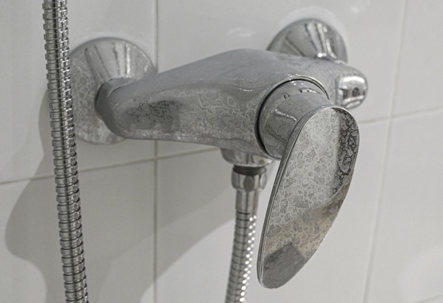Hard water stains are a common household issue caused by the high mineral content in water, predominantly calcium and magnesium. When water evaporates, these minerals are left behind, forming unsightly stains and deposits on various surfaces. These minerals can create a chalky white residue that is not only difficult to remove but can also damage surfaces over time.
These stains are particularly notorious for appearing on surfaces that frequently come into contact with water. Glass shower doors, for instance, can become cloudy and streaked, making them look perpetually dirty. Faucets and sinks often develop a white, crusty build-up that can be challenging to scrub off. Tiles and toilets are not spared either; they can show signs of discoloration and mineral deposits that make cleaning a never-ending chore. By understanding what hard water stains are and how they form, homeowners can better prepare to tackle and prevent them.
Testing for Hard Water
Testing for hard water is a straightforward process that can be done at home using test strips or kits available at most hardware stores. These kits typically involve dipping a test strip into a water sample and comparing the color change to a chart provided with the kit. The results will indicate the hardness level of the water, measured in grains per gallon (GPG) or parts per million (PPM).
Interpreting the test results is crucial in determining the severity of the hard water problem. Water with a hardness level of 0-3 GPG is considered soft, while water with a level of 7-10 GPG is considered hard. Anything above 10 GPG is very hard and will likely cause significant staining and build-up on surfaces. By knowing the hardness level of their water, homeowners can take appropriate measures, such as installing water softeners or using specific cleaning products designed for hard water stains.
Effective Cleaning Solutions
For those who prefer natural and cost-effective methods, DIY cleaning solutions can be highly effective against hard water stains. One popular solution involves using white vinegar, which is acidic and can dissolve mineral deposits.
Simply mix equal parts of white vinegar and water in a spray bottle, apply it to the stained area, and let it sit for a few minutes before scrubbing with a sponge or brush. Baking soda can also be used in combination with vinegar for tougher stains. Sprinkle baking soda on the stain, spray with vinegar, and scrub after the fizzing stops.
Lemon juice is another natural cleaner that works well on hard water stains due to its acidity. Apply lemon juice directly to the stain, let it sit for a few minutes, and then scrub with a brush. For an extra boost, mix lemon juice with a bit of baking soda to create a paste. These DIY solutions are not only effective but also eco-friendly and safe for most surfaces. Regular use can help keep hard water stains at bay and maintain the cleanliness of your home.
Preventative Measures: Water Softeners
One of the most effective ways to prevent hard water stains is by installing a water softener. Water softeners work by exchanging the calcium and magnesium ions in hard water with sodium or potassium ions, effectively reducing the mineral content.
This process not only prevents the formation of hard water stains but also extends the lifespan of appliances and plumbing systems. There are different types of water softeners available, including salt-based, salt-free, and magnetic systems, each with its own set of benefits and considerations.
Salt-based water softeners are the most common and effective, but they require regular maintenance and replenishment of salt. Salt-free systems, on the other hand, use a template-assisted crystallization process to neutralize minerals without adding sodium to the water. Magnetic systems are the easiest to install and maintain, but their effectiveness can vary. By choosing the right type of water softener, homeowners can significantly reduce the occurrence of hard water stains and enjoy the benefits of softer water.
Contact Our Water Treatment Professionals at Hague Quality Water
Dealing with hard water stains can be a challenging task, but with the right knowledge and tools, you can keep your home looking spotless. At Hague Quality Water, we specialize in providing effective solutions for hard water problems.
Whether you need a water softener installation or professional cleaning services, our team is here to help. Don't let hard water stains take over your home—reach out to us for expert assistance and enjoy the benefits of cleaner, softer water. (913) 349-6330

